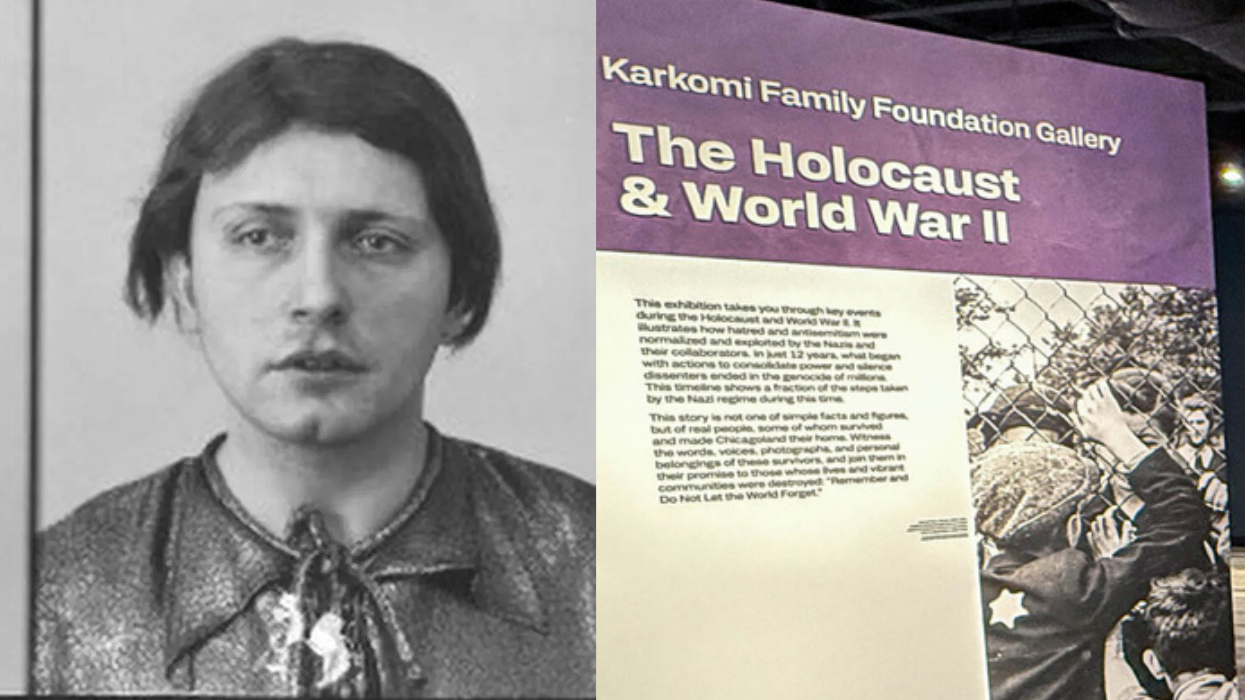CONTACTAbout UsCAREER OPPORTUNITIESADVERTISE WITH USPRIVACY POLICYPRIVACY PREFERENCESTERMS OF USELEGAL NOTICE
© 2025 Equal Entertainment LLC.
All Rights reserved
All Rights reserved
By continuing to use our site, you agree to our Privacy Policy and Terms of Use.
We need your help
Your support makes The Advocate's original LGBTQ+ reporting possible. Become a member today to help us continue this work.
Your support makes The Advocate's original LGBTQ+ reporting possible. Become a member today to help us continue this work.
In September the Connecticut supreme court agreed to take on what could be a landmark civil union case. But last week the plaintiff in the case, retired local businessman Glen Rosengarten, died of lymphoma. Now Rosengarten's attorneys are saying they will push to keep the case alive. Rosengarten and his then-partner of 15 years, Peter Downes of New York City, were joined in a civil union in Vermont on New Year's Eve, 2000. Six months earlier Vermont had enacted the country's first law allowing same-sex couples to enter into a legal relationship. Rosengarten, who was 54 when he died, filed a petition this summer asking the state supreme court to review decisions made by the state's lower courts, which said they had no jurisdiction over civil union matters, since the state does not recognize same-sex marriages. Vermont is the only state that does recognize same-sex civil unions, and Rosengarten was considered the first person in the nation to attempt to legally dissolve a civil union outside of that state. Rosengarten's lawyers say they will push to keep the case alive by waiting for the executor of Rosengarten's estate, a determination made in probate court, to stand in for Rosengarten in court. "We're asking the supreme court to keep this case because we think it's a matter of important public interest," said attorney Gary Cohen, who is married to Rosengarten's former wife. "The question of whether the courts have jurisdiction here does not die with Mr. Rosengarten, and there are other couples [affected] by this." In the past year Rosengarten grew seriously ill with lymphoma and HIV. He said prior to his death he did not believe Downes would try to stake a claim on his assets, but to be on the safe side he wanted to protect the inheritance rights of his three children from a previous marriage. In their petition to the state supreme court, Cohen and cocounsel Kenneth Bartschi of Hartford wrote that the courts should have the jurisdiction to end a civil union, since it is a contract like any other. "Even though Connecticut does not have its own civil unions scheme and does not issue marriage licenses to same-sex couples, the lack of the ability to form such relationships in Connecticut does not evince a strong public policy as to the dissolution of civil unions formed elsewhere," the lawyers wrote. "Dissolving the parties' civil union will not affect any of the myriad rights and responsibilities of marriage for any couple in Connecticut. Nor does it affect the scope of the state's authority to decide who may marry."
From our Sponsors
Most Popular
Bizarre Epstein files reference to Trump, Putin, and oral sex with ‘Bubba’ draws scrutiny in Congress
November 14 2025 4:08 PM
True
Jeffrey Epstein’s brother says the ‘Bubba’ mentioned in Trump oral sex email is not Bill Clinton
November 16 2025 9:15 AM
True
Watch Now: Pride Today
Latest Stories
Joe Biden says MAGA Republicans want to make LGBTQ+ people ‘into something scary’
December 05 2025 8:20 PM
'Finding Prince Charming's Chad Spodick dies at 42
December 05 2025 3:45 PM
Supreme Court to hear case on Trump order limiting birthright citizenship
December 05 2025 3:01 PM
Women gamers boycott global esports tournament over trans ban
December 05 2025 2:55 PM
Anti-LGBTQ+ hate crimes reached record-highs last year in this gay haven
December 05 2025 1:16 PM
Three lesbian attorneys general beating back Trumpism in court warn of marriage equality’s peril
December 05 2025 12:07 PM
Trump DOJ rolls back policies protecting LGBTQ+ inmates from sexual violence
December 05 2025 11:12 AM
Georgia law banning gender-affirming care for trans inmates struck down
December 05 2025 9:40 AM
Tucker Carlson and Milo Yiannopoulos spend two hours spewing homophobia and pseudo-science
December 04 2025 4:47 PM
'The Abandons' stars Gillian Anderson & Lena Headey want to make lesbian fans proud
December 04 2025 4:38 PM
Tig Notaro is working on a 'hot lesbian action' movie with Zack Snyder
December 04 2025 4:36 PM
Cis men love top surgery—it should be available for all
December 04 2025 4:35 PM
Denver LGBTQ+ youth center closed indefinitely after burglar steals nearly $10K
December 04 2025 12:57 PM
Trans pastor says she’s ‘surrounded by loving kindness’ after coming out to New York congregation
December 04 2025 11:13 AM
Lesbian educator wins $700K after she was allegedly called a ‘witch’ in an ‘LGBTQ coven’
December 04 2025 10:59 AM
Years before Stonewall, a cafeteria riot became a breakthrough for trans rights
December 04 2025 10:50 AM
Charlie Kirk’s widow set to join out CBS News chief Bari Weiss for televised town hall
December 04 2025 10:20 AM



































































Charlie Kirk DID say stoning gay people was the 'perfect law' — and these other heinous quotes